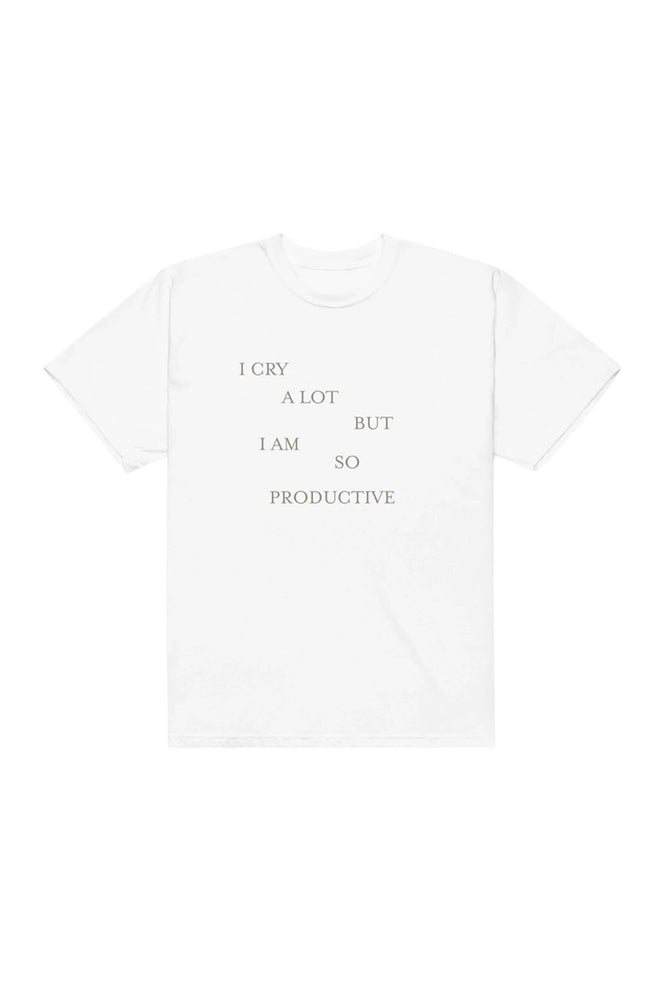Hear ye, hear ye! Election Day is finally here. After months of candidate commercials, televised debates, lots of deranged tweets, and one global pandemic, the day has finally arrived for us to cast our votes and hope America gets renewed for another season. As if 2020 hasn’t been traumatizing enough, we now have the pleasure of dealing with election anxiety. Yes, voters are now experiencing heightened levels of stress and anxiety as a result of this sh*tshow we call an election. I mean, duh. But as we gear up to head to the polls, check our mail-in status, and anxiously await the results, it’s crucial that we also carve out time to take care of ourselves. A lot of things are out of our control right now, and that can feel overwhelming, but spiraling into a dark hole of doom and hopelessness isn’t going to do anyone any good. Perspective and mindfulness are key. It’s critical that we find ways to keep ourselves occupied and in check. To help reduce some of this election induced anxiety, I consulted with multiple experts on how to emotionally prepare yourself for election day.
What Is Election Anxiety?
First off, let me assure you that the glass case of emotions that you are in with respect to this election are completely valid. Election Stress Disorder, aka election anxiety, is a real thing that is taking a toll on a majority of voters leading up to the 2020 election, with 52% of Americans reporting in a survey done by the American Psychological Association that the election is “a very or somewhat significant” source of stress. So you’re not alone! I spoke with Natalie Ryan, LCAT, a psychotherapist in NYC, who says, “Nearly all of my patients have been speaking about election related stress and anxiety.” She adds, “A topic that’s come up a lot in sessions is processing people’s biggest fears of what might happen if their candidate does or doesn’t win.” This feeling of uncertainty and anticipation for Tuesday’s election results is only increasing our already heightened sense of anxiety from the dumpster fire that is 2020. I also spoke with the Regional Medical Director at One Medical, Natasha Bhuyan, MD, who has seen an influx of patients dealing with excess stress due to the upcoming election. Dr. Bhuyan says that, “Some patients are having trouble sleeping with racing thoughts about worst-case scenarios. Others are spending lots of time consuming the news and struggling to unplug.” I feel incredibly seen.
To elaborate more on how people, specifically younger generations, are feeling, I spoke with the Senior Director of Measurement & Insights at Fullscreen, Amelia Rance. Fullscreen’s insights division launched an election study that surveyed the political stances of 3,000 millenials and Gen Zers, ranging in ages from 18 to 37 years old. Rance says they found that, “We’ve always seen with a lot of the research that we do that this generation is thinking more about their future and are more aware of certain things, so they feel this stress and anxiety overall more than some of the other generations.” And they all said millennials were self-centered.
Rance continues, “When we asked specifically about the election, uneasy was the number one emotion that they were feeling, tied with hopeful.” This awkward balance of feelings can be a lot to handle. The best way to manage this upset of emotions is to find ways to support yourself and your mental health, especially during times of political uncertainty. Yes, I’m talking about self-care!
Have A Voting Plan
First and foremost, establish a voting plan. Dr. Bhuyan says, “Start by having a plan for Election Day. If you haven’t voted, where will you go to vote? Be sure to research the polling location and logistics like parking.” She also advises, “Do a sample ballot ahead of time (including the initiatives) so you don’t feel stressed about making those decisions on Election Day.” The more organized you are, the better your brain is going to feel. If you’re voting by mail, then double check you sent it in on time and its status. If you’re voting in person, make sure you have the right address for your polling location. Preparation is essential in reducing unnecessary stress.
Plan Your Day
Along with establishing a voting plan, it’s also wise to think about how you want to spend the day. Are you planning on watching the news all day, or are you blocking everything out and pretending like it’s not happening? Will you be with friends and family, or by yourself? There is no universal right answer. Ryan suggests, “Spend some time thinking about what will feel the most nourishing to you that day, and try your best to have things in place to help with self-soothing.” That could range from face masks, to ice cream, to a punching bag, or all the above, whatever will work best for you—no judgment.
Set Boundaries
As you think about what mental practices will best suit you, don’t be afraid to set boundaries with friends, family, and even with the news. You are not obligated to discuss politics if it’s going to be detrimental to your sanity. The same goes with the news and social media. Dr. Bhuyan says, “Many news and social media platforms are designed to have no natural stopping point––there are always more posts to read, videos to watch, and links to click on. As a result, people need to set intentional parameters about how much they consume.” Setting boundaries is a healthy way to preserve your mental well-being and to help prevent yourself from falling victim to political fatigue. Additionally, Ryan suggests, “Maybe you want to have a set time for when you check in with the results, rather than watching constantly for hours at a time. Spend some time thinking about what will feel the most nourishing to you that day.” It’s all about doing whatever feels right for you. Keep the news on all day or go totally off the grid—no option is better than the other.
Manage Expectations
It’s also important to try and level your expectations. Dr. Bhuyan says, “Managing expectations is a skill that requires being honest with yourself. While people use polls, predictors, and statisticians, know that there is still a wide realm of possibilities in terms of outcomes.” And keep in mind that just because voting ends on Tuesday does not mean that we will have answers on Tuesday. Rance adds, “There’s a strong chance that we won’t know what the outcome is, and then there’s still going to be that uneasiness until we actually know the results. Suspect that the uneasiness will continue after Election Day, unfortunately.” Try not to set yourself up for failure by expecting all of your anxieties to be resolved within one day.
Do Your Part
Another way to reduce anxiety is to focus on what is in your control. Rance says, “It’s important that people feel that they have done all that they can do in terms of making change happen.” She continues, “If people really feel like they’ve done all they can do in terms of motivating their friends and family to vote, or reach[ing] out to states that are more undecided, and really can make an impact; I think that’s how they’ll most feel prepared for the outcome.” Do everything that you need to do, so you can feel at peace and like you’ve done your part—whether that’s phonebanking, talking to family members, posting on social media, volunteering, etc. Oh yeah, and VOTING.
Try Not To Spiral
In the same way that we should moderate our social intake, we should also be conscious of spiraling into a doomsday mentality. Ryan advises, “While it’s important to give ourselves space to process, it’s also incredibly important to recognize when we’re catastrophizing so we can rescale our fears.” She continues, “The first step to stop the catastrophizing and rumination cycle is to recognize when it’s happening. Once we have the awareness we have options to help us move away from it.” If you feel yourself start to spiral, just pause, take a breath, and then pivot to the Pinot, or whatever your self-soothing technique is—again, no judgment. Ryan says, “Distraction, clearing your mind with meditation or breathing exercises, talking to a friend, listening to music, or getting some exercise are some ways we can actively avoid dwelling on worst case scenarios” are all things you can try to calm the f*ck down.
Regardless of Tuesday’s results, it is important to remember that there will still be a Wednesday, a Thursday, a Friday, and an anticipated, hilarious Saturday Night Live. Time will go on, the Earth will keep rotating, and life will continue. I fully understand how pivotal this outcome is and how that can feel. It may seem like a do-or-die, make-or-break moment in time, but that is precisely what this is, a moment in time. As Rance says, “The privilege of voting is something that has been reborn, and people are going to continue to stay passionate, regardless of the outcome on election day.” Hope is not made or broken on November 3rd. The results are what they are. You may not be able to control the outcome, but you can control how you handle it.
Lastly, Dr. Bhuyan recommends, “Try to challenge yourself to see the silver lining in even the most difficult conditions.” Give it a shot. I’ll go first, my silver lining is that election day falls on taco Tuesday, so win or lose, we can still have a margarita, and I will cheers to that.
Images: vesperstocck / Shutterstock.com









































